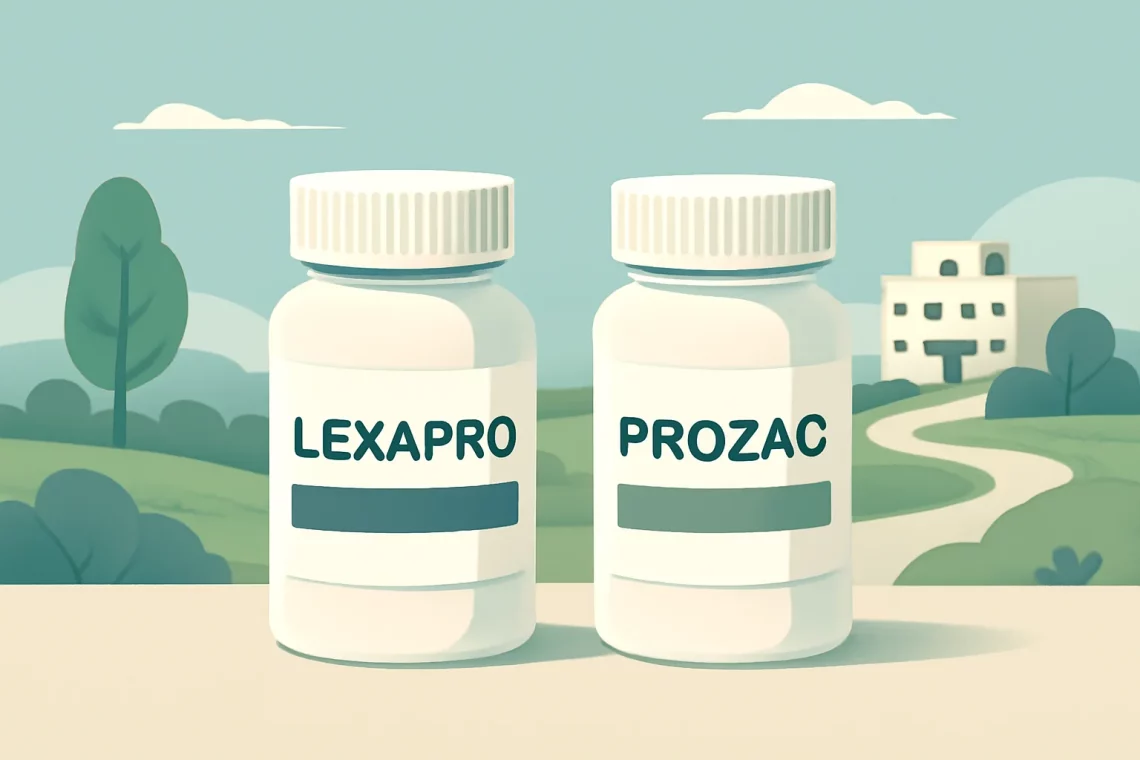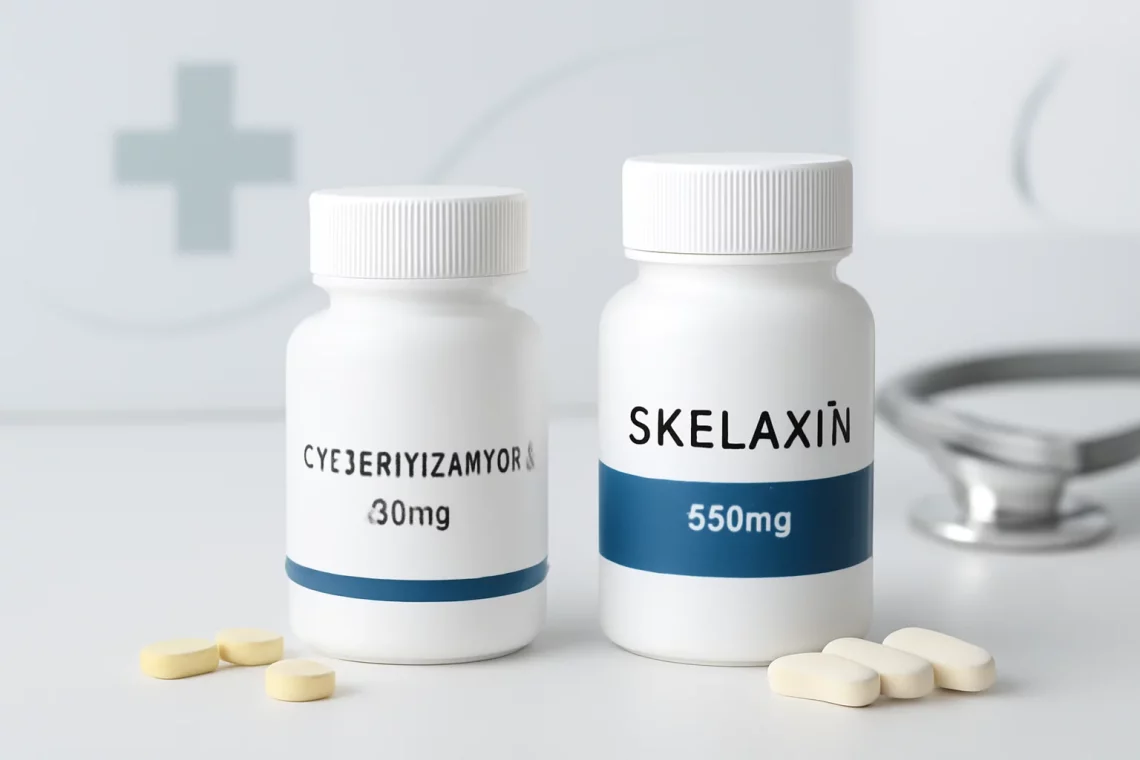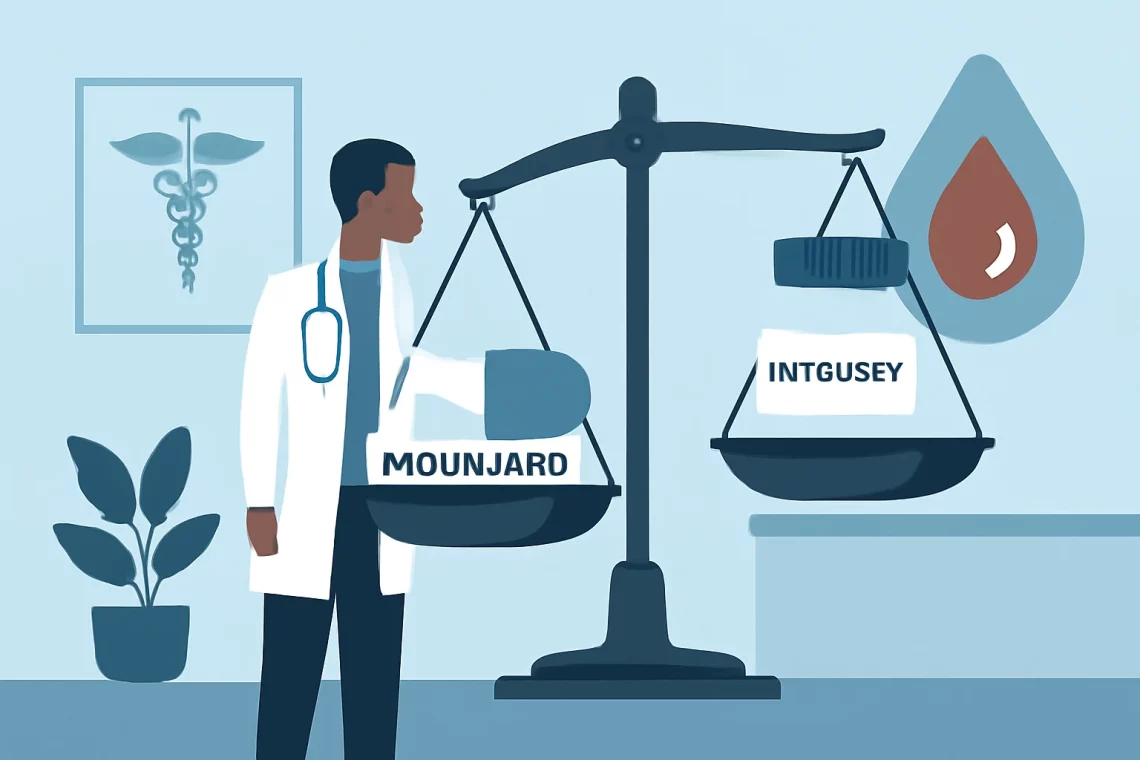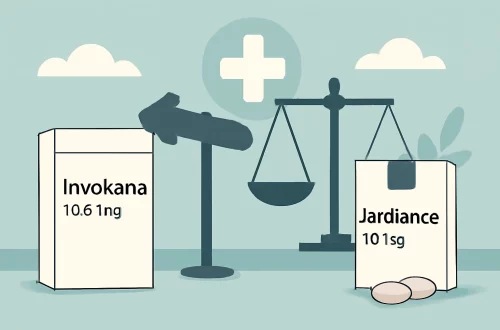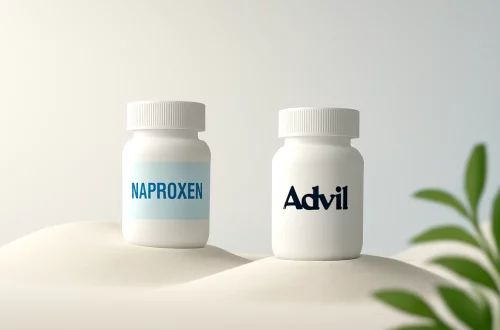-
Cymbalta vs Savella: A Comprehensive Comparison of Two Medications
Cymbalta and Savella are two medications frequently discussed in the context of treating chronic pain and mood disorders. Both belong to a class of drugs known as serotonin-norepinephrine reuptake inhibitors (SNRIs), which are designed to help regulate the levels of serotonin and norepinephrine in the brain. These neurotransmitters play crucial roles in mood regulation and pain perception, making these medications valuable tools in managing conditions such as fibromyalgia, anxiety disorders, and major depressive disorder. Despite their similar mechanisms of action, Cymbalta and Savella are prescribed for different indications and can have varying effects on patients. Understanding the distinctions between these two medications is essential for patients and healthcare providers alike.…
-
Lexapro vs Prozac: A Comprehensive Comparison of Two Antidepressants
Depression and anxiety are two of the most common mental health disorders affecting millions of individuals worldwide. As awareness of mental health issues has grown, so too has the range of treatment options available. Among these options, selective serotonin reuptake inhibitors (SSRIs) have gained prominence for their efficacy in treating depression and anxiety-related disorders. Lexapro and Prozac are two of the most well-known SSRIs prescribed by healthcare professionals. While both medications aim to balance serotonin levels in the brain, their formulations and specific uses can vary significantly. Understanding the differences between Lexapro and Prozac is crucial for patients seeking effective treatment for mental health issues. Factors such as side effects,…
-
Citalopram vs Paxil: Understanding the Key Differences and Uses
Citalopram and Paxil are two medications frequently discussed in the context of mental health treatment, particularly for conditions such as depression and anxiety disorders. Both belong to a class of drugs known as selective serotonin reuptake inhibitors (SSRIs), which are designed to increase serotonin levels in the brain. This enhancement of serotonin activity is thought to improve mood and emotional balance. The choice between citalopram and Paxil often raises questions among patients and healthcare professionals alike, as each drug has its own unique profile of benefits and potential side effects. While both medications aim to alleviate symptoms of mental health disorders, they can differ significantly in their effectiveness, tolerability, and…
-
Cyclobenzaprine vs Skelaxin: Comparing Muscle Relaxants for Pain Relief
Cyclobenzaprine and Skelaxin are both widely used medications in the realm of muscle relaxants. These medications play a crucial role in alleviating muscle spasms and discomfort, often resulting from injuries, overexertion, or conditions such as fibromyalgia. Understanding the differences, benefits, and potential side effects of these drugs is essential for patients considering their use. The choice between Cyclobenzaprine and Skelaxin can significantly influence treatment outcomes, as each medication has its unique properties and indications. As muscle relaxants, they act on the central nervous system to reduce muscle tension and enhance mobility, which can be particularly beneficial in rehabilitation settings. Both medications have their advocates and specific circumstances under which they…
-
Vraylar vs Latuda: A Comprehensive Comparison of Two Antipsychotics
Vraylar and Latuda are two medications that are commonly prescribed for the treatment of psychiatric disorders, particularly schizophrenia and bipolar disorder. Both drugs belong to a class of medications known as atypical antipsychotics, which are designed to manage symptoms such as hallucinations, delusions, and mood swings. While they share similar mechanisms of action, they also have unique properties that differentiate them in terms of efficacy, side effects, and patient experience. In recent years, the understanding and treatment of mental health conditions have evolved, leading to the development of newer medications that aim to improve patients’ quality of life. Choosing the right medication is crucial for effective treatment and can significantly…
-
Mounjaro vs Metformin: Which Diabetes Treatment is Right for You?
Managing diabetes effectively is crucial for maintaining a good quality of life. With the rise of various treatment options, patients and healthcare providers are often faced with the task of selecting the most suitable medication. Two popular options include Mounjaro and Metformin, which serve distinct purposes in diabetes management. Mounjaro, a newer medication, has captured attention for its potential benefits, while Metformin has long been regarded as the first-line treatment for Type 2 diabetes. Understanding the mechanisms, benefits, and side effects of these medications can empower patients to make informed decisions. Each drug has its unique characteristics, and their effectiveness may vary depending on individual health conditions and lifestyle choices.…
-
Benzonatate vs Codeine: Understanding Their Differences and Uses
Benzonatate and codeine are two medications commonly used to manage coughs, but they operate in distinctly different ways and have varying implications for patient care. Benzonatate is a non-narcotic cough suppressant that works by numbing the throat and lungs, reducing the urge to cough. On the other hand, codeine is an opioid that not only relieves cough but also serves as a pain reliever. Understanding the differences between these two medications is crucial for patients who may be considering their options for cough relief. Coughing can be a bothersome symptom caused by various conditions, including allergies, colds, and respiratory infections. Both benzonatate and codeine have their places in treatment protocols,…
-
Cephalexin vs Clindamycin: Which Antibiotic is Right for You?
Cephalexin and clindamycin are two antibiotics that are commonly prescribed for various bacterial infections. While both medications are effective in treating infections, they differ in their mechanisms of action, the types of bacteria they target, and their side effects. Understanding these differences is crucial for both healthcare providers and patients to ensure the appropriate antibiotic is chosen for a specific infection. In a world where antibiotic resistance is an increasing concern, selecting the right medication becomes even more vital. This article aims to delve into the characteristics of cephalexin and clindamycin, examining their uses, effectiveness, and potential side effects. By the end of this discussion, readers will have a clearer…
-
Benzonatate vs Mucinex: Which Cough Relief is More Effective?
When it comes to managing coughs and respiratory discomfort, many people find themselves navigating a wide array of over-the-counter medications. Among these, Benzonatate and Mucinex have gained popularity for their effectiveness in alleviating symptoms associated with colds, allergies, and respiratory infections. Both medications serve distinct purposes and work in different ways, making it essential for consumers to understand their unique properties and potential uses. Benzonatate, a non-narcotic cough suppressant, can help individuals struggling with persistent coughs by targeting the cough reflex in the brain. Meanwhile, Mucinex, which contains guaifenesin, is primarily an expectorant that aids in thinning mucus, making it easier to expel from the lungs. This difference in action…
-
Benzonatate vs Tessalon Perles: Which Cough Suppressant is Better?
Benzonatate and Tessalon Perles are two commonly prescribed medications used to manage cough symptoms. While both have similar applications, they differ in their active ingredients, mechanisms of action, and side effects. Understanding these differences can help patients make informed decisions about their treatment options. Coughing is a reflex that helps clear the airways of irritants, but chronic coughing can be uncomfortable and disruptive. Consequently, effective treatment is crucial for those suffering from persistent coughs due to various underlying conditions, such as allergies or respiratory infections. In recent years, the demand for effective cough suppressants has led to a more significant focus on medications like benzonatate and Tessalon Perles. As patients…




